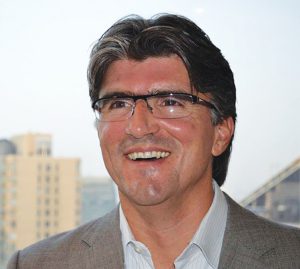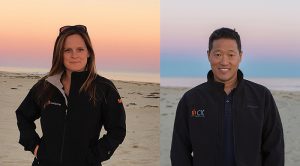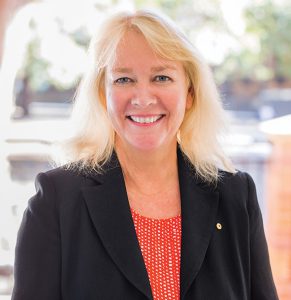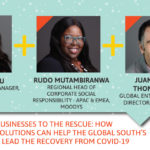We asked our network: “What does the ‘future of work’ mean to you? What are you doing in your business to prepare for or address that future?”
We got responses from dozens of top conscious business leaders. While we could have filled the whole issue with their insights, we decided to bring you just a sample of their predictions, questions, and best practices.
 “It’s an opportunity to invite the voices that have historically been shut out into a much-overdue dialogue on how work shapes our communities and all the people who live within them.”
“It’s an opportunity to invite the voices that have historically been shut out into a much-overdue dialogue on how work shapes our communities and all the people who live within them.”
—Kaiton Williams, Cultural Technologist of Impact America Fund
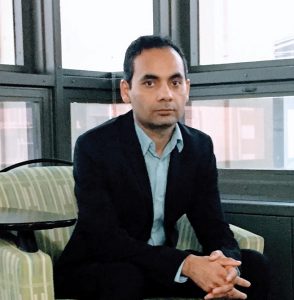 “Artificial intelligence and increased automation; the elimination of low-skill manual jobs in several industries but the creation of new jobs requiring different skillsets; nationalism/populism tampering unrestrained globalization; equal pay for equal work regardless of race or gender; and more cross-functional/cross-industry collaboration: seamless communication in teams.”
“Artificial intelligence and increased automation; the elimination of low-skill manual jobs in several industries but the creation of new jobs requiring different skillsets; nationalism/populism tampering unrestrained globalization; equal pay for equal work regardless of race or gender; and more cross-functional/cross-industry collaboration: seamless communication in teams.”
—Shelley Saxena, CEO of Sevamob
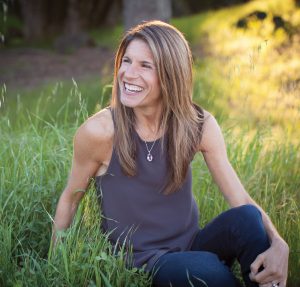
Photo by Sarah Marcella Photography
“The ‘future of work’ means a workforce, including leadership teams and boards, that is diverse, equitable, and inclusive, and that all stakeholders, from investors to farmers, suppliers to retailers, consumers to the Earth itself, will be valued and treated with respect and benefit from all of our interconnected relationships. With inclusion and equity, we will have the diversity of voices needed to solve the greatest, most complex challenges. As businesses, this will lead to next-level innovation and growth.”
—Sheryl O’Loughlin, CEO of REBBL
“Contrary to popular belief, rather than eliminating jobs, cognitive technologies will serve to create new jobs that are service-oriented, interpretive, social, and use essential human skills such as empathy, creative thinking, and innovation. This means organizations must be strategic in developing their talent and consider how they will re-skill and retain the workforce as technology evolves.”
—Steve Hatfield, Principal of Deloitte Consulting
 “The future of work is inclusive, equitable companies led by talented, creative, and dynamic people who are truly representative of our broader society. This includes individuals from all genders, races, and economic backgrounds. Leadership teams, in particular, will be representative of their customers, employees, and environment.”
“The future of work is inclusive, equitable companies led by talented, creative, and dynamic people who are truly representative of our broader society. This includes individuals from all genders, races, and economic backgrounds. Leadership teams, in particular, will be representative of their customers, employees, and environment.”
—Anya Cherneff, Co-founder and Executive Director of Empower Generation
 “To me the future of work really means the rise of the individual entrepreneur; people taking individual responsibility for their own careers through lifelong learning, global work platforms, and distributed work practices. Geography, race, gender, and educational background will no longer trump talent. Longer term, it also has the potential to reduce the environmental footprint of work significantly.”
“To me the future of work really means the rise of the individual entrepreneur; people taking individual responsibility for their own careers through lifelong learning, global work platforms, and distributed work practices. Geography, race, gender, and educational background will no longer trump talent. Longer term, it also has the potential to reduce the environmental footprint of work significantly.”
—Patrick Llewellyn, CEO of 99designs
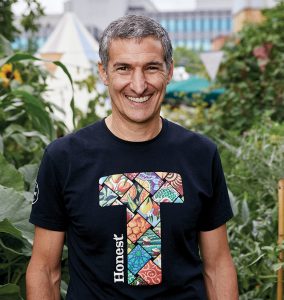 “The rising generation of leaders will insist on doing work that is in line with their values. Given that there is no such thing as a perfect company, we need to continue to challenge ourselves along every dimension of the business to do better. The interesting challenge will be for companies that offer values-neutral work as they struggle to remain relevant.”
“The rising generation of leaders will insist on doing work that is in line with their values. Given that there is no such thing as a perfect company, we need to continue to challenge ourselves along every dimension of the business to do better. The interesting challenge will be for companies that offer values-neutral work as they struggle to remain relevant.”
—Seth Goldman, Co-Founder and TeaEO Emeritus of Honest Tea
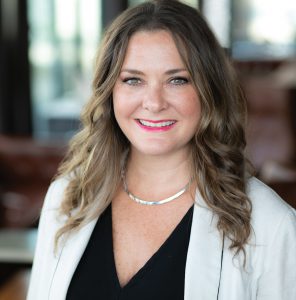 “So much of the future is going into AI and other technologies, which are not areas where training and knowledge are adequately dispersed among all people and groups. We need to look at ways to build skills-based pipelines in underrepresented populations to fill those gaps and give all people the opportunity to succeed.”
“So much of the future is going into AI and other technologies, which are not areas where training and knowledge are adequately dispersed among all people and groups. We need to look at ways to build skills-based pipelines in underrepresented populations to fill those gaps and give all people the opportunity to succeed.”
—Kristy Wallace, CEO of Ellevate Network
 “Two very long-term but inevitable trends are coming at us. The first is, the current demand for greater flexibility continues to evolve from flextime to work from home to independent planning and execution. The second trend is technology. Artificial intelligence is coming at us quickly and serious studies indicate that large numbers of current jobs will be automated. As these two forces progress, I believe that we, as a planetary society, will need to begin discussing issues like far shorter working hours per person and minimum income whether a person is working or not.”
“Two very long-term but inevitable trends are coming at us. The first is, the current demand for greater flexibility continues to evolve from flextime to work from home to independent planning and execution. The second trend is technology. Artificial intelligence is coming at us quickly and serious studies indicate that large numbers of current jobs will be automated. As these two forces progress, I believe that we, as a planetary society, will need to begin discussing issues like far shorter working hours per person and minimum income whether a person is working or not.”
—Amy Domini, Founder and Chair of Domini Impact Investments

“1. Using iterative practices that use collective knowledge to problem-solve, innovate, and improve on how our organization functions.
2. Cultivating collective leadership models by ‘passing the mic.’ In other words, working to make sure that the voices of people who are most impacted by our work are also involved in decision-making processes. This is key to keeping the work relevant and successful.
3. Taking time for mindfulness in order to more consciously shape business practices that are sustainable, smart, and accountable.”
—Aisha Fukushima, Founder, Speaker, and Vocalist of RAPtivism
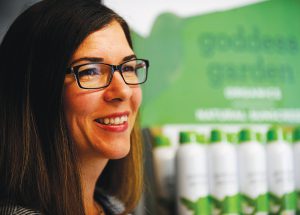 “Creating meaningful change in the world is the future of work.”
“Creating meaningful change in the world is the future of work.”
—Nova Covington, CEO and Founder of Goddess Garden Organics
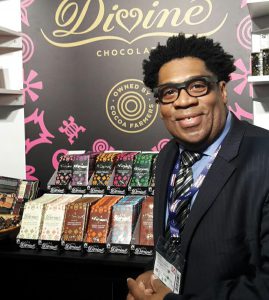 “I look for passionate folks who are comfortable with being uncomfortable.”
“I look for passionate folks who are comfortable with being uncomfortable.”
—Troy Pearley, EVP General Manager of Divine Chocolate US
 “The future of work will require all of us to realize our strengths, our talents, and our unique gifts so we can differentiate ourselves from the other 7 billion people on the planet.”
“The future of work will require all of us to realize our strengths, our talents, and our unique gifts so we can differentiate ourselves from the other 7 billion people on the planet.”
—Vicki Saunders, Founder of SheEO
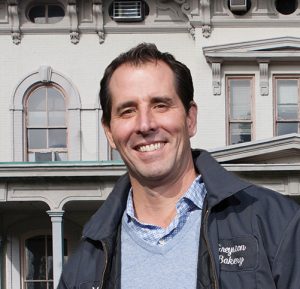 “It’s where most human capital models are based on radical trust and inclusion, and the dignity of work for all is recognized as an essential element of a happy society.”
“It’s where most human capital models are based on radical trust and inclusion, and the dignity of work for all is recognized as an essential element of a happy society.”
—Mike Brady, President and CEO of Greyston Bakery
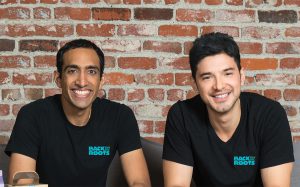 “The future of work is inspired, purpose-driven, decentralized, and highly agile. Transparency, both internal and external, will become the norm.”
“The future of work is inspired, purpose-driven, decentralized, and highly agile. Transparency, both internal and external, will become the norm.”
—Alejandro Velez and Nikhil Arora, Co-founders/Co-CEOs of Back to the Roots
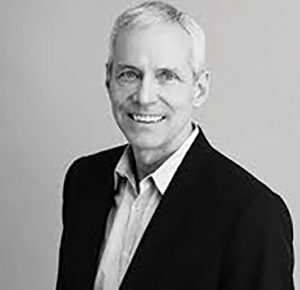 “The future of work revolves around continuous feedback and growth.”
“The future of work revolves around continuous feedback and growth.”
—Jim Barnett, CEO and Co-founder of Glint
“It’s not enough to be a pioneer or even a leader. You’ve got to be a convener, too. We seek out and collaborate with kindred spirits to bolster results, amplify voice, and make things happen for the greater good.”
—Melissa Hughes, Chief Mission Officer of Organic Valley
 “The 9-to-5 is dying, if not dead. Employees aren’t just looking for ‘jobs’ anymore — they’re looking for mission-based careers they are passionate about and that add meaning to their lives.”
“The 9-to-5 is dying, if not dead. Employees aren’t just looking for ‘jobs’ anymore — they’re looking for mission-based careers they are passionate about and that add meaning to their lives.”
—Michael “Kipp” Baratoff, Co-founder of Fishpeople Seafood
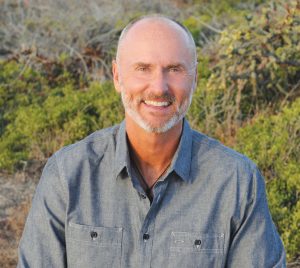 “With five generations in the workplace for the first time, the future of work is all about intergenerational collaboration.”
“With five generations in the workplace for the first time, the future of work is all about intergenerational collaboration.”
—Chip Conley, Airbnb Strategic Advisor, author of “Wisdom@Work: The Making of a Modern Elder”
 “In all industries, innovation will be the driving force for success. We do this by having the freedom to pursue the big idea. I like to empower my employees to ‘go for it’ without fear of failure.”
“In all industries, innovation will be the driving force for success. We do this by having the freedom to pursue the big idea. I like to empower my employees to ‘go for it’ without fear of failure.”
—Tom Szaky, CEO and Founder of TerraCycle
“Education is the new currency. Organizations that create an environment where learning is at the heart of the company culture will outperform.”
—Meghan Messenger and Charlie Kim, Co-CEOs of Next Jump Inc.
 “More and more people will become self-employed micro-entrepreneurs.”
“More and more people will become self-employed micro-entrepreneurs.”
—Aneri Pradhan, CEO of ENVision mobile
 “I envision a ‘future of work’ where time and skills are not merely exchanged for money. … Work becomes an avenue for people to manifest their highest selves, regardless of the specific content and/or roles they play in the organizations they form and belong to.”
“I envision a ‘future of work’ where time and skills are not merely exchanged for money. … Work becomes an avenue for people to manifest their highest selves, regardless of the specific content and/or roles they play in the organizations they form and belong to.”
—Ivo Grossi, CEO of SportsArt
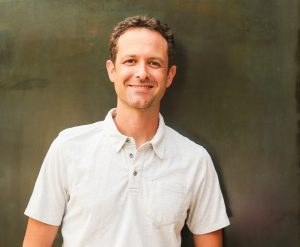 “Work will become a more broadly engaging experience where people have a strong sense of identity with their work community both on and off the clock; a natural blurring of the lines between ‘work’ and ‘life.’”
“Work will become a more broadly engaging experience where people have a strong sense of identity with their work community both on and off the clock; a natural blurring of the lines between ‘work’ and ‘life.’”
—Ryan Lewis, Founder and CEO of EarthHero
“If each person gets to focus on their zone of genius, work will improve drastically and people will be happier.”
—Miki Agrawal, Founder of TUSHY
 “The future of work will be a question of the future of organizing people. My organization is working to push decision-making to the edges by developing structures that allow the people closest to the issues — our customers and field agents — to have the highest weighting in informing decisions.”
“The future of work will be a question of the future of organizing people. My organization is working to push decision-making to the edges by developing structures that allow the people closest to the issues — our customers and field agents — to have the highest weighting in informing decisions.”
—Samir Ibrahim, CEO and Co-founder of SunCulture
 “More work will be done from remote locations and collaborations will be worldwide. Newer technologies will allow broader participation and more perspectives. Work will be done with more flexibility. Workers will have to set boundaries for their time away from work.”
“More work will be done from remote locations and collaborations will be worldwide. Newer technologies will allow broader participation and more perspectives. Work will be done with more flexibility. Workers will have to set boundaries for their time away from work.”
—Deborah Jackson, CEO and Founder of Plum Alley Investments
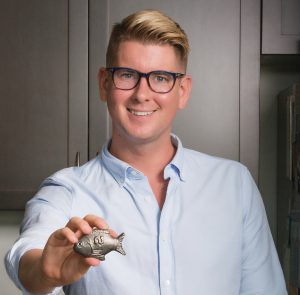 “Employees will demand more social impact from their employers and will want to contribute to causes they believe in. Consumers will continue to demand more from the brands they purchase and will want their purchases to have meaning.”
“Employees will demand more social impact from their employers and will want to contribute to causes they believe in. Consumers will continue to demand more from the brands they purchase and will want their purchases to have meaning.”
—Gavin Armstrong, Founder and CEO of Lucky Iron Fish Enterprise
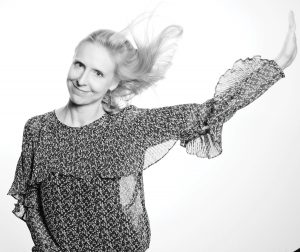 “The future of work is AI and machine learning — and more inclusion, differing perspectives, and empathy. … Societally, as we move toward greater automation across industries, our call to action is to look honestly at the gaps and which populations are falling through.”
“The future of work is AI and machine learning — and more inclusion, differing perspectives, and empathy. … Societally, as we move toward greater automation across industries, our call to action is to look honestly at the gaps and which populations are falling through.”
—Olivia Khalili, VP of Global Social Impact and Philanthropy of PagerDuty
 “The future of work has to be cross-sector collaboration over competition. Work is an intricate dance across countries, time zones, cultures, languages, and new technologies — finding creative ways to connect and work towards a common goal.”
“The future of work has to be cross-sector collaboration over competition. Work is an intricate dance across countries, time zones, cultures, languages, and new technologies — finding creative ways to connect and work towards a common goal.”
—Alexie Seller, CEO of Pollinate Energy
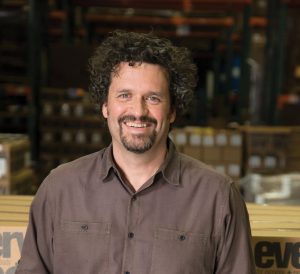 “To me, the real question is the future to how we spend our time — there isn’t a separation of work and non-work. We all have to take accountability for our actions, we must do the best we can — be it at work, our time with our kids, grocery shopping — all of it.”
“To me, the real question is the future to how we spend our time — there isn’t a separation of work and non-work. We all have to take accountability for our actions, we must do the best we can — be it at work, our time with our kids, grocery shopping — all of it.”
—Bradley Black, Co-CEO of EO Products
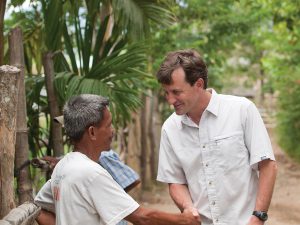 “Rather than being viewed as something to extract value from, workers must be seen as integral partners in an organization’s long-term success.”
“Rather than being viewed as something to extract value from, workers must be seen as integral partners in an organization’s long-term success.”
—Paul Rice, President and CEO of Fair Trade USA
 “Like nature, the economic systems of the future will be place-based and decentralized. While many people see the future of work being about technology, it will also be about jobs with direct personal relationships that build strong communities.”
“Like nature, the economic systems of the future will be place-based and decentralized. While many people see the future of work being about technology, it will also be about jobs with direct personal relationships that build strong communities.”
—Judy Wicks, Co-founder of BALLE and Founder of White Dog Cafe (retired)
 “Think digital first. Lead with empathy. Work globally. Seek talent and collaborators based on skill and fit rather than location. Be authentic and transparent as a company. Engage with your communities.”
“Think digital first. Lead with empathy. Work globally. Seek talent and collaborators based on skill and fit rather than location. Be authentic and transparent as a company. Engage with your communities.”
—Fabian Geyrhalter, Founder and Principal of FINIEN
 “I’m a fan of Helen and Scott Nearing. They tell us that when you find work that you love, you will never work again. So, the future of work is love.”
“I’m a fan of Helen and Scott Nearing. They tell us that when you find work that you love, you will never work again. So, the future of work is love.”
—Lyle Estill, Ring Master and Lion Tamer of Fair Game Beverage Company
“People want to get up every day and know they’re doing something to contribute to the world. … I think that only businesses that do great things for the world will survive and thrive into the next few decades.”
—Audette Exel, Founder of Adara Group
 “How can we ensure that our most precious resource — time — is spent in a way that creates a positive dent in the universe?”
“How can we ensure that our most precious resource — time — is spent in a way that creates a positive dent in the universe?”
—Mike Baker, Founder and CEO of SOLE and ReCORK
“What if people were allowed to experience periods of inquiry and creativity, periods of relentless productivity, and periods of quiet contemplation, release, and recovery, just like grasses need time to recover after they are grazed and trampled to grow new leaves and deepen their roots?”
—Daniela Ibarra-Howell, CEO of Savory Institute
“How can we rework capitalism to be more accountable for the impact we are having on planet Earth? How do we create a system of complete sustainability for my great-grandchildren’s generation and their kids?”
—Nova Covington, CEO and Founder ofGoddess Garden Organicss
“What does ownership mean in the next economy? How can we live nourishing lives while committing deeply to our purpose, without the curse of feeling like we are never enough?”
—Berry Liberman, Creative Director/Founder of Small Giants
“How can we best equip younger generations, Millennials and Gen Z, to succeed and lead? A recent survey from Deloitte highlights that Millennials want careers that benefit the world — and struggle to learn the ‘soft’ skills necessary to thrive in a chaotic, fast-paced workplace.”
—Cory Smith, CEO of Wisdom Labs
“Does this ‘future of work’ apply exclusively to the privileged? What does it mean if you’re working two or three jobs just to keep your head above water?”
—Jasper J. van Brakel, CEO of RSF Social Finance
“Is our team engaged in our mission? Do they live it? Does every employee feel their work is making a difference?”
—Kevin Rutherford, CEO of nuun
 “What issues do the planet and its inhabitants need resolved and what are the paths of least resistance to get there?”
“What issues do the planet and its inhabitants need resolved and what are the paths of least resistance to get there?”
—Miki Agrawal, Founder of TUSHY
“What motivates me? What energizes me? What could I do all day without ever getting tired?”
—Vicki Saunders, Founder of SheEO
“How do we ignite the power of affection in business?”
—Caroline Duell, CEO of All Good
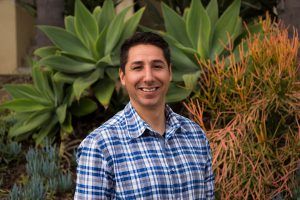
“The evolution of ‘work’ continues to move towards figuring out how we can create a purpose-filled job for our team and create value for our clients. We ask questions like: ‘Why do we work? How does work fit into our life? How do our careers progress? How do we stay current in our skills and capabilities? And how does work give us meaning and purpose?”
—Julien Brandt, Founder and CEO of Organik SEO
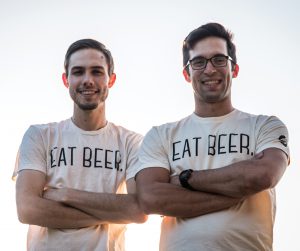 “What conditions can we create so that our people operate within an environment conducive to their best work? We are growing an organism here, not meticulously tuning a machine.”
“What conditions can we create so that our people operate within an environment conducive to their best work? We are growing an organism here, not meticulously tuning a machine.”
—Daniel Kurzrock and Jordan Schwartz, Co-Founders of ReGrained
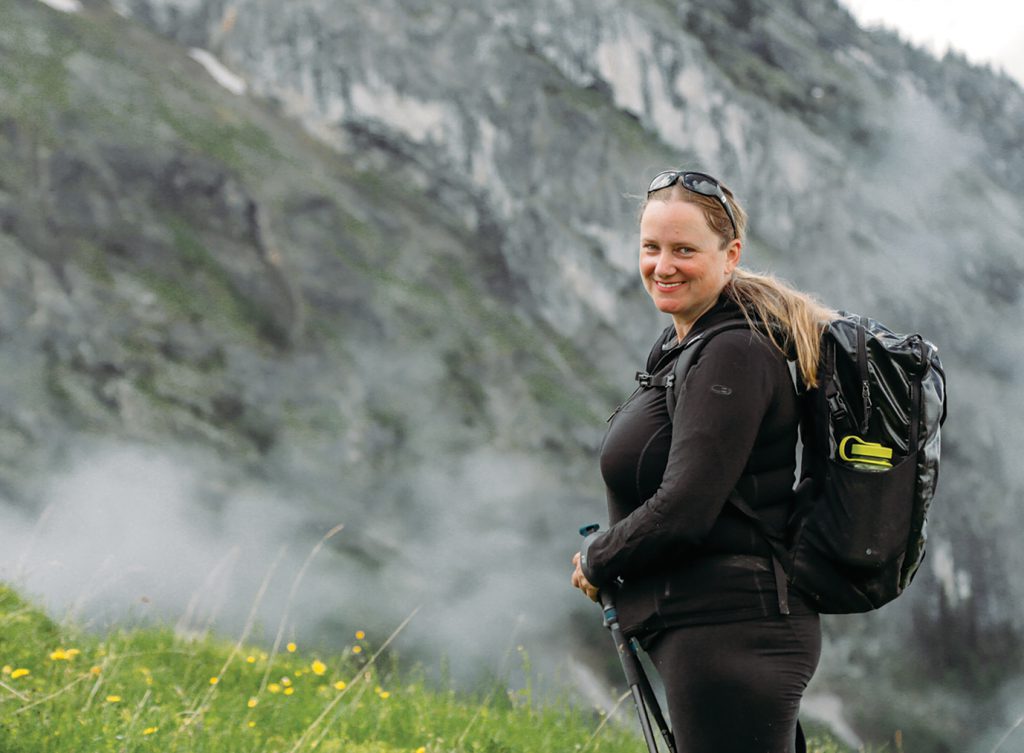
Kathryn Sheridan, CEO and Founder of Sustainability Consult
“We are currently experimenting with having a majority of the team on three or four days a week. As a result, we are no longer hiring on five-days-a-week contracts. I want to make sure the team has sufficient recovery time.
“As CEO, I tend to roam, but I make sure I’m in the office a couple of times a week to support the team face to face. I’m building our network of talented freelancers so we can be more flexible and still have access to top-notch people.
“I am exploring the future-of-work questions with fellow entrepreneurs and also writing about it. I spend lots of time in nature to stay grounded and open to possibility. With the team, I discuss their needs in the workplace using an approach from Non-Violent Communication. And in our monthly Woos and Boos (review) meetings, I bring a question around how we work for discussion in the group.
“I am doing a deep dive into the future of consulting, with its fixation on billable hours and timesheets taking precedence over results and happy clients. I would like to develop and test a new model for independent consultancies.
“If a more free-range work model is the antidote to the 9-to-5 model, then it is not without its own challenges. Luckily trailblazers and researchers are on the case and it is becoming easier to experiment with different models.”
—Kathryn Sheridan, CEO and Founder of Sustainability Consult

Lisa Curtis, Founder and CEO of Kuli Kuli
“The future of work revolves around two criteria: flexibility and purpose. At Kuli Kuli, one of the ways we’re exploring flexibility is through what we call ‘responsible time off.’ We encourage everyone on our team to take paid time off when they need to, and to work from where they need to, provided that it doesn’t negatively impact other team members. We’re asking ourselves how we can better support all our team members, and particularly new parents as they balance the demands of a startup with demands at home. One of the ways we’re exploring purpose is to have monthly check-ins on our core values and at least annual team retreats to evaluate if we’re living up to those values. We’re asking ourselves how we can ensure that everyone on our team is constantly learning and growing. I want every person on our team to wake up every morning excited to go to work.”
“The future of work will be led by the servant leaders, the CEOs who listen and adapt their workplaces based on their employees’ feedback.”
—Lisa Curtis, Founder and CEO of Kuli Kuli
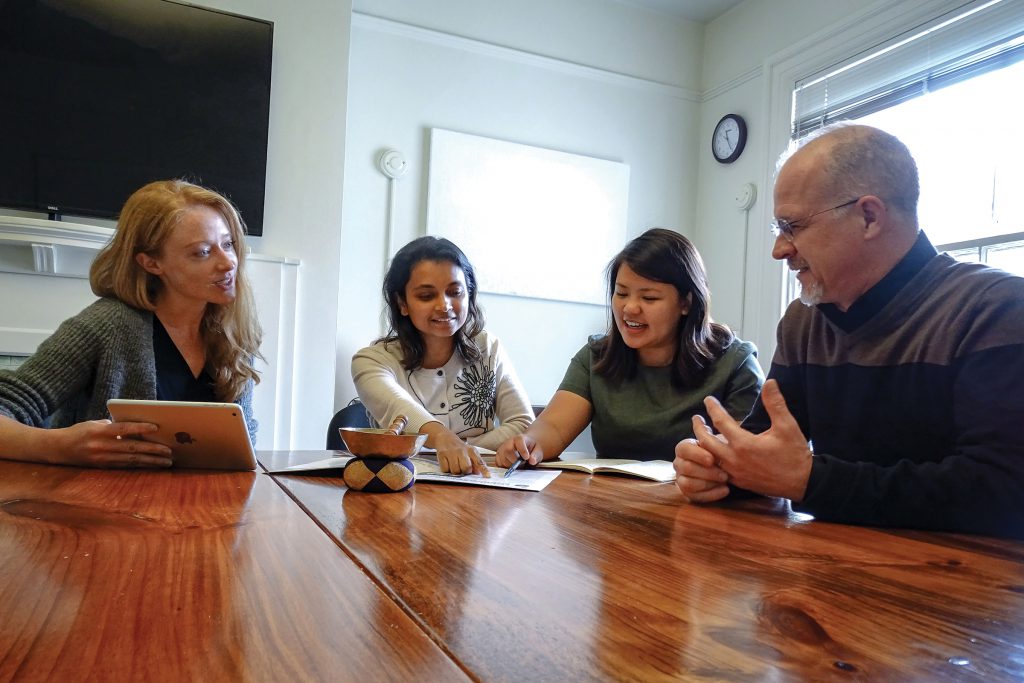
RSF Social Finance
“If we want to tap into people’s deeper and much more powerful and life-enhancing motives, we have to stop thinking that people are motivated primarily by money. At RSF, we see a paycheck not as a business expense, but as the income that our co-workers need. Because of that, RSF pays prospectively: you receive your pay on day one, which enables you to show up for work until the next paycheck arrives. This de-commodifies labor and emphasizes human dignity.”
“We don’t have any bonus or incentive structures and we pay according to the level of responsibility carried for the organization rather than for individual performance. Performance is discussed and recognized in a different context. And yet, our team is as fully and undividedly devoted to their work as any I’ve seen.
“Work is best achieved with others, which requires spending time together, rubbing elbows, figuring things out, holding each other accountable, and so on. We cherish our time together, sometimes maybe to a fault. At the same time, some of our staff work remotely, and we allow for flexibility in working hours so that work and life are integrated in a healthy and productive way. We’re actively in discussion about how to marry individual team members’ desire for flexibility with the need for overlapping hours and time together for the entire team.”
“We need to decommodify labor and see it as a meaningful way to develop ourselves as we work on something that is bigger than ourselves.”
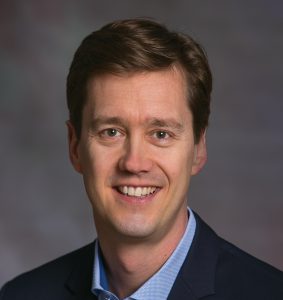
Jasper J. van Brakel, CEO of RSF Social Finance

